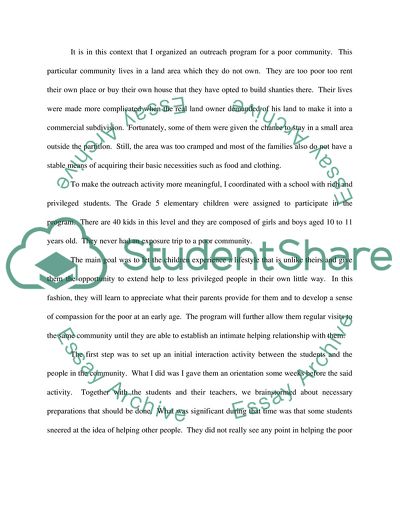Cite this document
(The Welfare of the Poor Case Study Example | Topics and Well Written Essays - 2500 words, n.d.)
The Welfare of the Poor Case Study Example | Topics and Well Written Essays - 2500 words. Retrieved from https://studentshare.org/sociology/1719668-description-and-reflection-on-a-group-activity
The Welfare of the Poor Case Study Example | Topics and Well Written Essays - 2500 words. Retrieved from https://studentshare.org/sociology/1719668-description-and-reflection-on-a-group-activity
(The Welfare of the Poor Case Study Example | Topics and Well Written Essays - 2500 Words)
The Welfare of the Poor Case Study Example | Topics and Well Written Essays - 2500 Words. https://studentshare.org/sociology/1719668-description-and-reflection-on-a-group-activity.
The Welfare of the Poor Case Study Example | Topics and Well Written Essays - 2500 Words. https://studentshare.org/sociology/1719668-description-and-reflection-on-a-group-activity.
“The Welfare of the Poor Case Study Example | Topics and Well Written Essays - 2500 Words”. https://studentshare.org/sociology/1719668-description-and-reflection-on-a-group-activity.


